‘AITA for allowing my child to work the self-checkout?’

In a new episode at a neighborhood supermarket, a parent chose to include their seven-year-old kid in the self-checkout process, permitting the little fellow to deal with the exchange with oversight. The parent, a defender of experiential learning, was enthused about offering their kid the chance to freely deal with the checkout. In spite of the youngster’s more slow speed, the exchange was finished without significant issues. Nonetheless, the circumstance took a turn when another customer communicated disappointment.
The customer, noticeably disturbed, moved toward the self-checkout region and offered a vilifying comment towards the parent and youngster, blaming them for deliberately dialing back the cycle.

Image credits: freepik (not the actual photo)
This response, portrayed as impolite and superfluous by the parent, featured the difficulties of keeping up with persistence and grasping in shared public spaces. The store’s self-checkout arrangement, which includes various machines with a solitary line for all, guaranteed that different clients had elective choices, limiting the effect on generally stand by times.
This situation highlights the significance of encouraging compassion and persistence in mutual settings. While it’s reasonable that a few people might feel troubled, it’s vital to perceive that everybody’s speed and growth opportunities change. Public spaces like supermarkets frequently require a harmony between private comfort and the thought of others, particularly while obliging the advancing necessities of small kids.
Read for more info Reddit

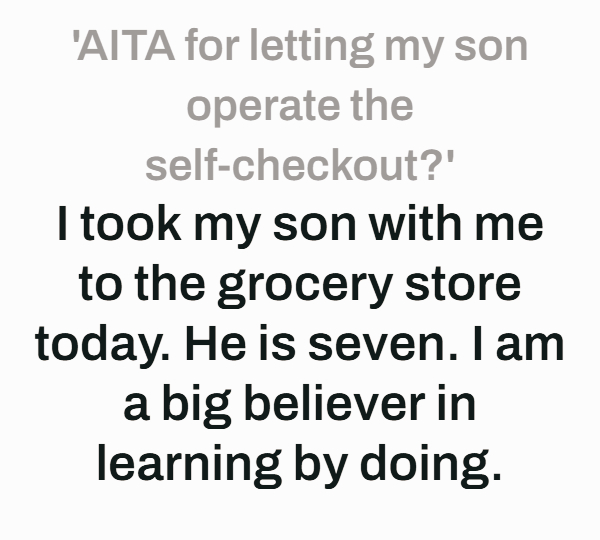
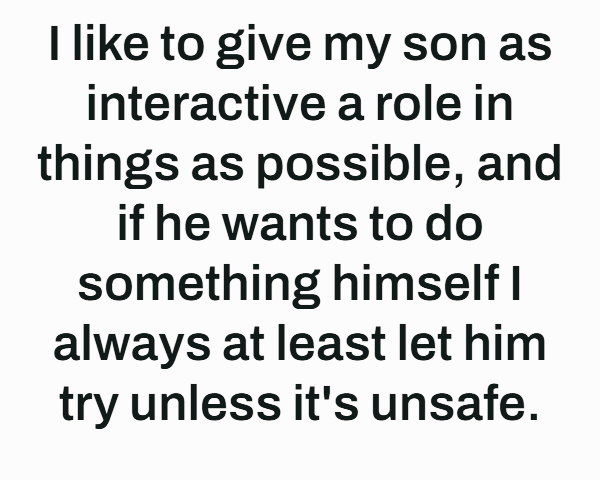
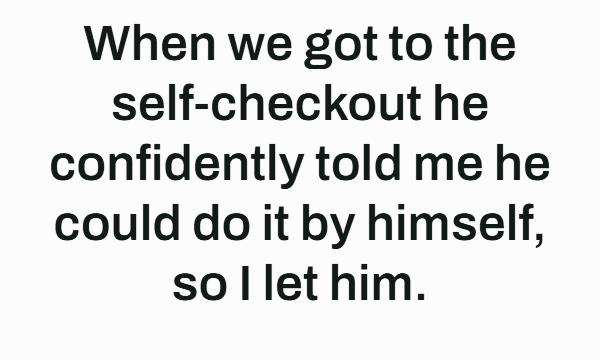

Image credits: freepik (not the actual photo)
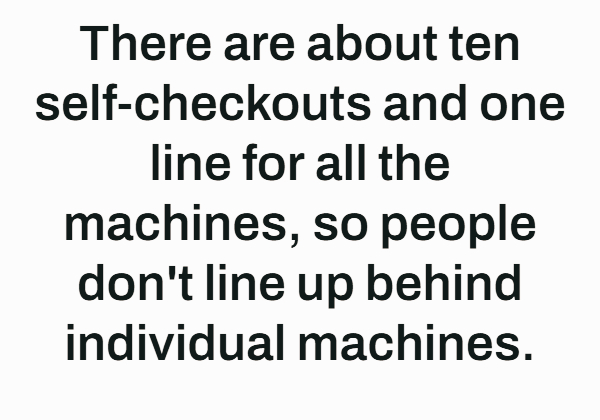
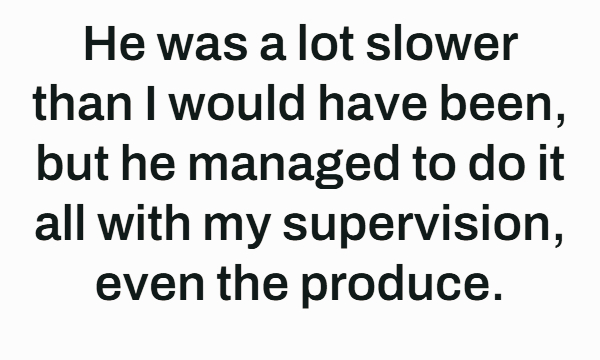



Image credits: Laura James (not the actual photo)
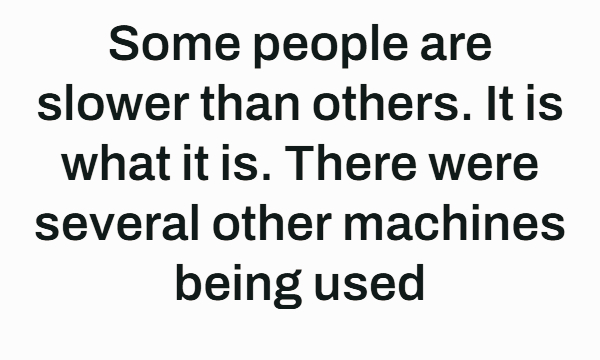

In a new circumstance at a supermarket, a parent permitted their seven-year-old kid to deal with the self-checkout process. This decision was inspired by a craving to show the youngster commonsense abilities through involved mastering. In any case, the choice happened during an especially active time, prompting blended responses from different customers. The self-checkout region was packed, with an observable line framing as the youngster required roughly ten minutes to finish the exchange.
A few reactions from the public featured a contention between the worth of experiential learning and the requirement for thought of others’ time. While the parent’s expectation was to give an instructive open door to their kid, the lengthy term of the checkout interaction on a bustling day was viewed as rude by some. Numerous analysts recommended that such learning exercises may be more qualified for calmer times or while dealing with less things, to limit disturbance for different clients.
The response from another customer, who voiced disappointment with a brutal remark, was likewise studied. This response was considered excessively impolite and pointless by quite a few people, stressing that while persistence is expected in broad daylight spaces, regarding others’ time is similarly significant. Successful correspondence, for example, saying ‘sorry’ to those pausing, was recommended as a method for tending to such circumstances carefully.
Generally, the occurrence highlighted the significance of offsetting instructive open doors with public behavior. Taking into account both the benefit of showing minutes for kids and the effect on individual customers, particularly in occupied environments is fundamental.
Individuals hopped on with their viewpoints on the circumstance.
dejausser wrote:
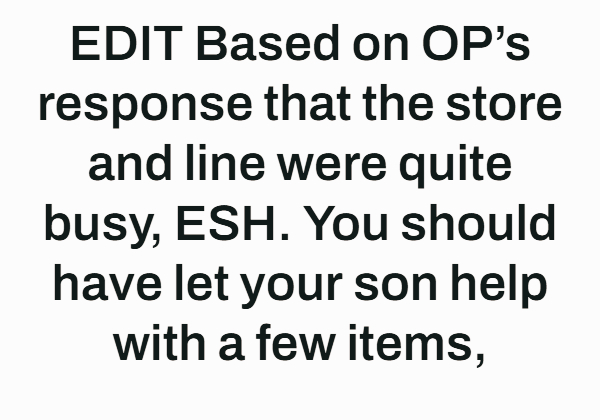
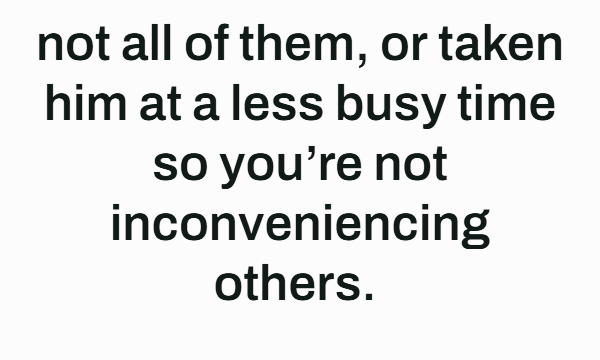
IllTakeaGuinness wrote:
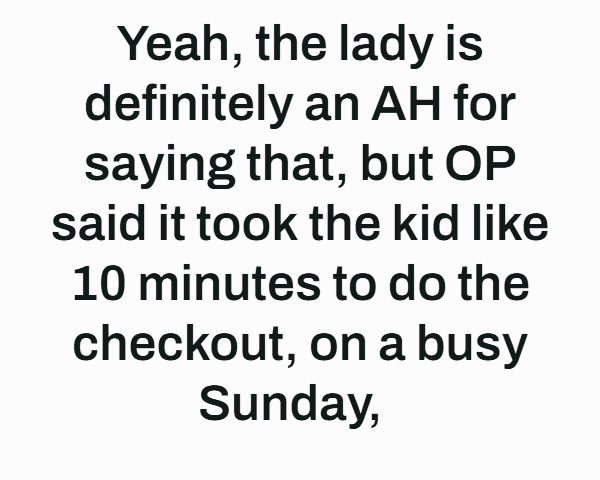

RandomGirl42 wrote:
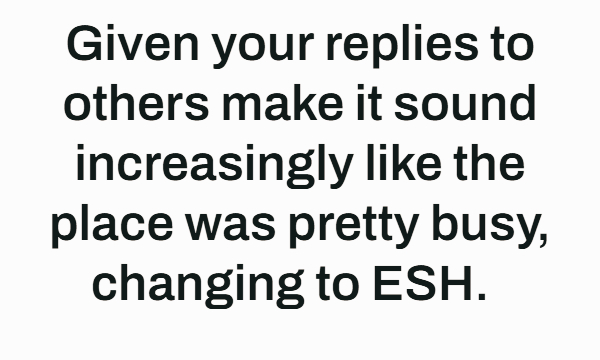
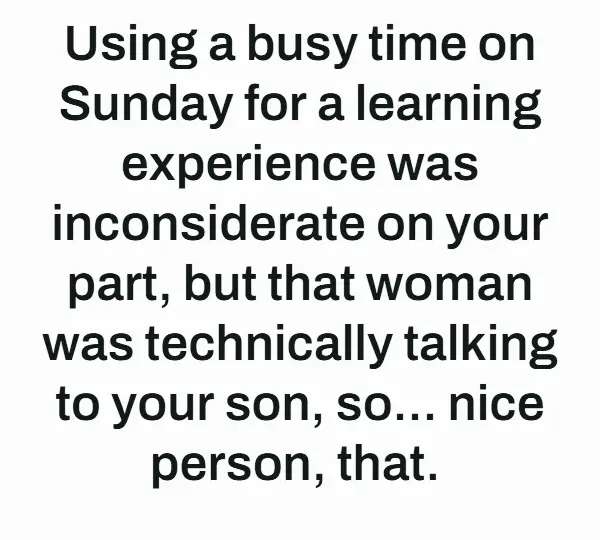
brownbro22 wrote:
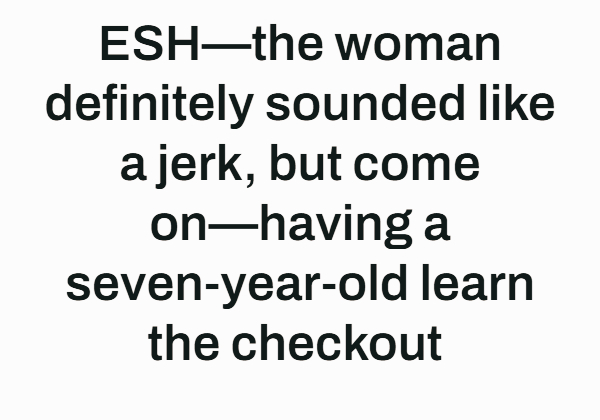
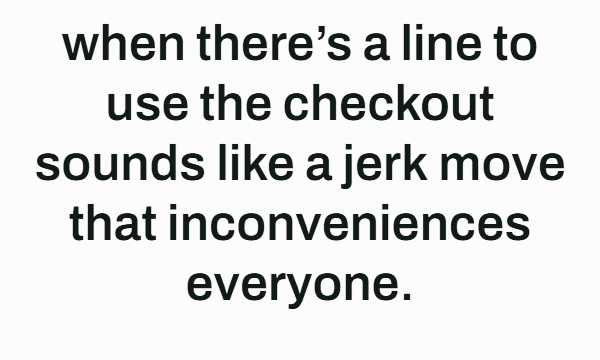
shaunnotthesheep wrote:
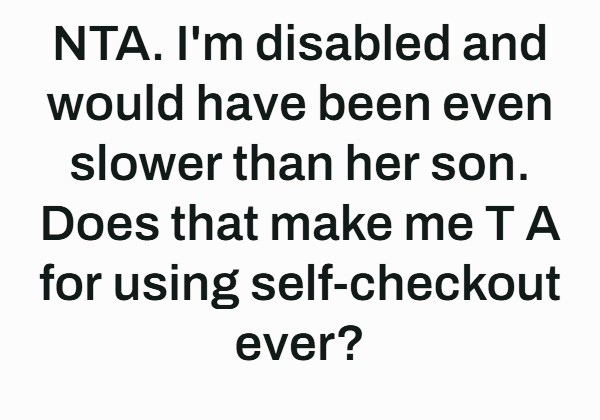
With everything taken into account!
A seven-year-old kid was permitted to work a self-checkout at the supermarket, notwithstanding being surprisingly sluggish. The kid figured out how to finish the job with oversight, in any event, eliminating produce. Be that as it may, a lady commended him for his sluggish speed, which the creator saw as impolite and inappropriate. The store had different machines accessible, so the kid’s sluggish speed might not have altogether affected her stand by time.
Obviously, this post has the web profoundly isolated.

